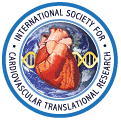This course will fulfill an unmet educational need and provide you with valuable knowledge to be successful in developing therapies and expediting scientific discovery to patients. Ultimately, this course will enable you to contribute to life saving developments that improve the quality of life. This course will change your approach to medicine and innovation. The information is critical for anyone who works in product development, whether as an innovator, physician, scientist, engineer, regulator, or at a reimbursement agency. The development of this course has been the result of a tremendous effort by and collaboration of a number of experts. Experts from the FDA, led by Dr. Bram Zuckerman, director of the cardiovascular device division at the FDA for over 20 years, and experts from the European Commission.
This course also includes the most renowned scientists and innovators, whose innovative devices have changed patients’ lives. Other expertise and knowledge has been brought into this course from the world industry leaders: Abbott, Boston Scientific, Edward Life Sciences, Medtronic and many others. Many of the authors of guideline documents have participated in this course and have explained the way that a new device can finally be recommended for patients. Key members of the largest insurer in this country, CMS, have also contributed to this course. They provided their knowledge, and guidance and emphasized the importance of the meaningful clinical endpoints that a therapy needs to achieve to justify reimbursement. This important knowledge is needed even before clinical trials begin.
This course will address all the steps of translational research: from proof of concept, to preclinical investigation, to clinical application in patients; as well as the methods that guideline committees and regulatory and reimbursement agencies use for endorsing and approving therapy. This course incorporates both basic and advanced statistics such as frequentist, Bayesian, and various statistical methods that are needed for translational research. The knowledge this course provides is unique and critical to your career, with step-by-step explanations of product development.
Finally, this course provides you with the knowledge that you need to play an important role in device development, a process that brings therapy to patients to improve their survival and quality of life.
